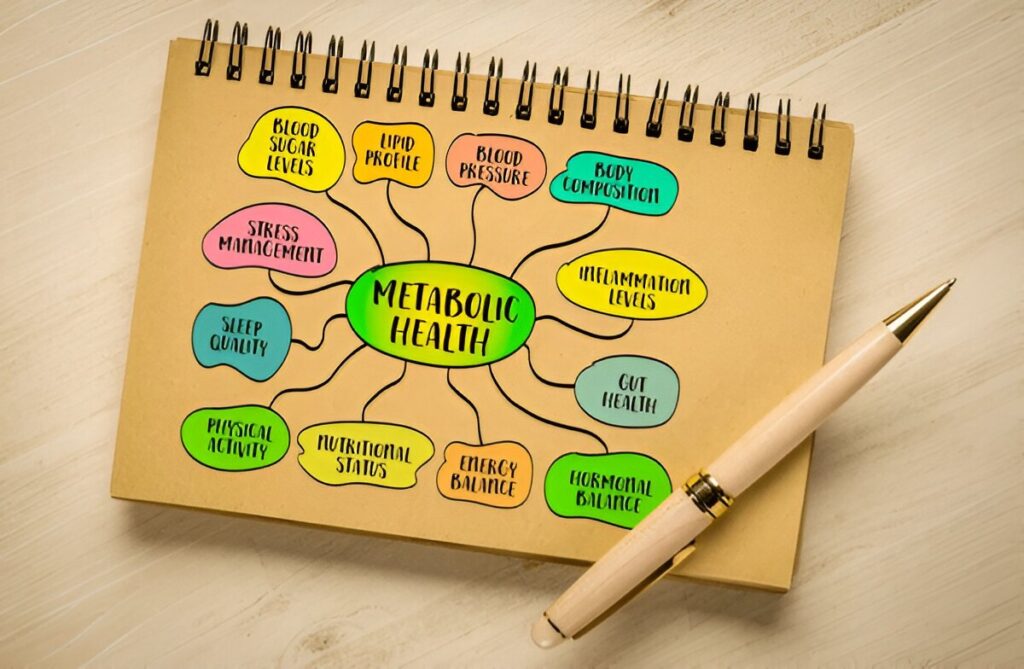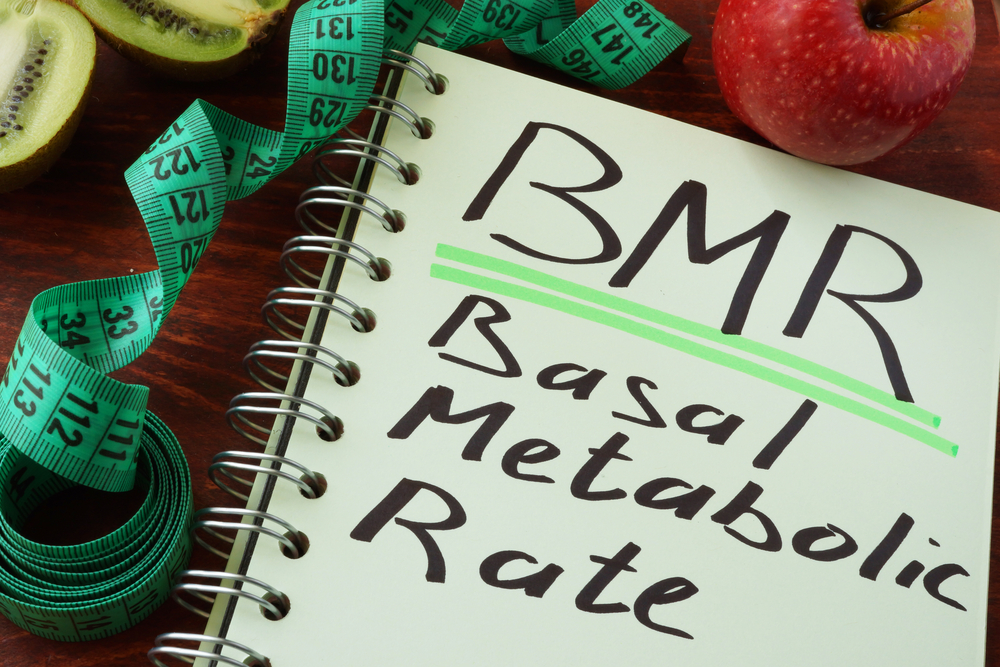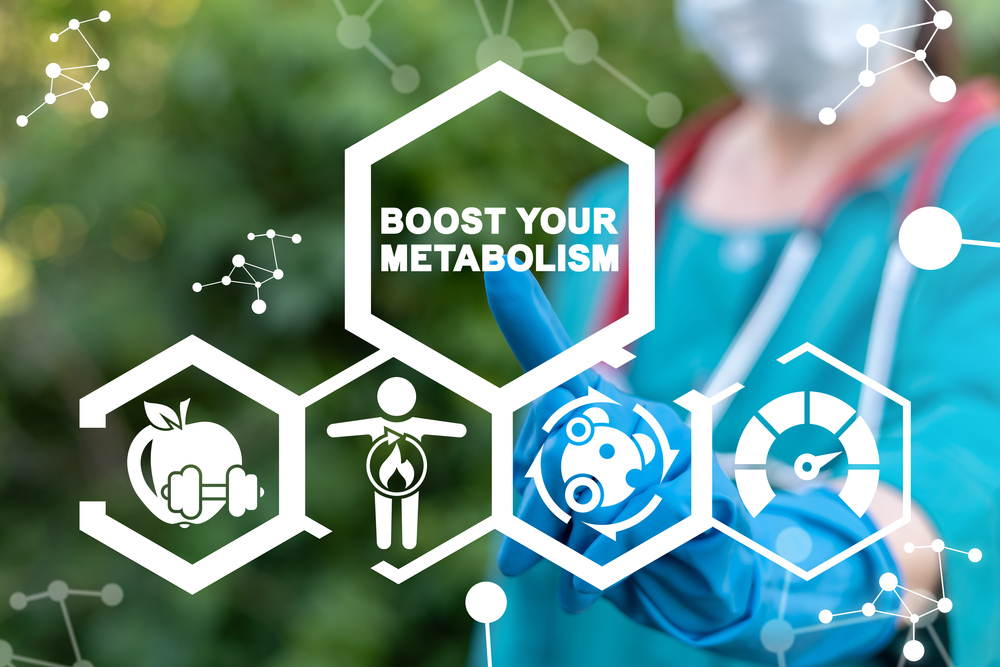Understanding Your Metabolism and Its Role in Weight Loss

Weight loss is a goal for many, but it often feels like a mystery as to what drives it. At the heart of it all lies metabolism—a core factor that affects how your body uses energy. But what is metabolism exactly, and how can you boost it naturally to achieve your fitness goals?
This guide will simplify the science behind metabolism, debunk myths, and provide actionable steps to enhance it for sustainable weight loss and overall health naturally.
What Is Metabolism? A Simple Breakdown
Think of metabolism as your body’s energy factory. The chemical processes convert the food you eat into the energy your body needs. Metabolism powers everything—from your heartbeat to your morning run.
There are three key components to metabolism:
1. Basal Metabolism (BMR)
BMR is the energy your body uses at rest to perform essential functions, like breathing and maintaining body temperature. This accounts for approximately 60-70% of your daily calorie burn.
2. Resting Metabolism (RMR)
Often used interchangeably with BMR, RMR includes the energy used for minor physical activities, like fidgeting or sitting upright.

3. Thermic Effect of Food (TEF)
Did you know digestion burns calories? The thermic effect of food refers to the calories your body uses to digest, absorb, and process the food you eat. This accounts for about 10% of your daily energy expenditure.
Together, these components form the foundation of your metabolism. But what does this mean for weight loss?
Debunking Common Myths
Myth 1
A faster metabolism guarantees weight loss.
Truth: While a faster metabolic process burns more calories, weight loss ultimately depends on your calorie intake versus expenditure. “How much you eat, drink, and move are the main factors influencing weight,” explains Harvard Health Publishing.
Myth 2
Thin people have faster metabolisms.
Truth: People with more muscle mass (regardless of size) tend to have higher resting metabolic rates. This is why strength training is so practical for raising your metabolic process!
Myth 3
Metabolism slows dramatically after 30.
Truth: While metabolic process does decline slightly with age, staying active, eating well, and strength training can mitigate the effects.
Factors That Influence Your Metabolic Rate
Why do some people seem to have a “fast metabolic process” while others don’t? Here are the key factors that play a role in your metabolic rate.
Muscle Mass: Muscle tissue burns more calories than fat, even at rest.
Age: Metabolic process naturally slows about 1-2% per decade after your 20s, primarily due to muscle loss.
Gender: Men typically have more muscle mass and less fat, often leading to higher metabolic rates than women.
Genetics: Your genetic makeup can influence your body’s natural metabolic efficiency.
Activity Level: Sedentary lifestyles lead to lower metabolism, while regular Exercise keeps it active.
Luckily, there are natural ways to influence these factors and boost your metabolic process.
7 Natural Metabolism Boosters Backed by Science

1. Build Muscle
The more muscle you have, the more calories you burn—even while sleeping. Resistance training and weightlifting are great for increasing muscle mass. “Strength training is key to boosting your metabolic process,” says the American Council on Exercise.
2. Eat Enough Protein
Protein has a higher thermic effect than carbs and fats, meaning your body uses more energy to digest it. Including protein in every meal can temporarily increase your metabolism by 15–30%.
3. Stay Hydrated
Dehydration slows down metabolic process. Research suggests that drinking 500ml (around 16 ounces) of water can increase calorie burn by up to 30% for an hour.
4. Get Quality Sleep
Poor sleep can disrupt hormones like leptin and ghrelin, which regulate hunger and metabolic process. Prioritize 7–9 hours of good-quality sleep each night.
5. Drink Green Tea or Coffee
Both beverages contain natural compounds like caffeine and catechins that can mildly boost metabolism for a few hours.
6. Manage Stress
Chronic stress raises cortisol levels, interfering with your metabolic process and promoting fat storage. Practices like yoga, meditation, and deep breathing can help reduce stress.
7. Stay Active Throughout the Day
Beyond your gym session, staying active with small movements—like standing, stretching, or taking short walks—keeps your metabolism engaged
Incorporating Metabolism Boosters Into Your Routine
Boosting your metabolic process isn’t about radical changes but small, consistent steps. Here’s how to incorporate these tips into your daily life between work and other commitments.

Morning
Start your day with a glass of water and a protein-packed breakfast. Your metabolic process will thank you for the boost.Afternoon
Use your break to do a 15-minute bodyweight workout or a brisk walk. If you’re a coffee lover, consider sipping a cup before your workout for an extra calorie burn.Evening
Cook dinner with lean protein and fiber-rich veggies. Plan to wind down an hour before bed to ensure restful sleep.
